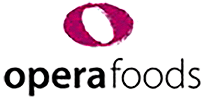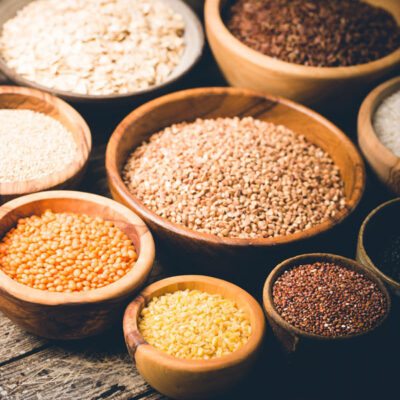Brands
Choosing organic groceries beyond produce
By: admin On: 23 February 2022

Is it really organic? The ins and outs of Organic Certification.
How do we go about choosing our organic groceries wisely?
By now, most of us are aware that organic food is food that has met certain standards in terms of the way it is grown or raised. We expect it to be free from chemical residues that cause harm to human and environmental health. We understand that this food has been produced with integrity and respect. But what are really buying? What does the label actually mean?
Organic food vs big food
The whole question of organic food is pretty complex but, in a nutshell, we expect it to be the exact opposite of Big Food. In case you aren't familiar, Big Food is the collective name given to the food industry giants that dominate the global food chain. With climate change at the top of the current agenda, it would be pretty hard to miss the discussion on the effect that industrial food and farming has on our planet.
Regulations vary from country to country but generally, organic crops must be grown without synthetic herbicides, pesticides, or fertilisers. Animals raised for meat, eggs, and dairy, must be raised in conditions that allow them to exhibit natural behaviours. They are raised without antibiotics, growth hormones and feed must not contain animal by-products. This in in huge contrast to the synthetic chemicals and restrictive conditions that have become common practice in industrial food production.
The organic standard and organic certification
Each country has its own organic standard. This is the set of guidelines that are followed to ensure organic best practice. Although the parameters will vary between countries, in a global marketplace there needs to be some kind of continuity. A common understanding of what organic food means. Food and ingredients are shipped around the world at an alarming rate so we all need to be on roughly the same page. Even countries that are less well regulated are tightly controlled when it comes to the food they export.
In general terms, across the world, organic food is a systems approach to food production that is environmentally, socially and economically sustainable. Other than reducing the toxic burden of harmful chemicals, the standard is concerned with...
- The use of renewable resources
- Conservation of energy, soil and water
- Recognition of livestock welfare needs
- Environmental maintenance and enhancement
The organic standard is a set of guidelines. Regulation and legislation follow these guidelines. As with any red tape, the lines can be blurred. The goal is to ensure traceability along the entire supply chain.
It begins with organic farming
Despite the fact that most of our food is produced on an industrial scale, involving a massive infrastructure of storage, production, and transportation, we have not yet reached the point where our food is created in a lab. We still rely on the land as the source of the majority of our food. And that means one thing...farming.
The first step in organic food regulation begins with the farm. It might seem obvious, but we have become so divorced from the land, especially in terms of our relationship with food, that we easily forget that food is a thing we grow. The entire point of organic food is to bring back that connection.
Organic farms can only be certified after they have been following organic principles for a number of years, usually three. A farm may follow many of the principles of organic farming, but unless it is certified as organic it cannot produce food that is considered strictly organic.
The difference between organic produce and organic products
The supply chain itself is pretty complex, involving every single element involved in food production. Yet there is one basic distinction we can make in order to understand where the lines may get a little blurry. And that is the difference between produce and products.
Organic produce is simply the food that is grown or raised on a certified organic farm. It can be defined as a single ingredient. It undergoes minimal processing such as storage and transportation before it reaches the end of its supply chain journey. Its organic status is defined by the organic status of the farm.
Organic products have further to travel along the supply chain. Even the simplest of products, tinned tomatoes for example, will now include another ingredient. Something added to improve its shelf life, such as citric acid. The tomato itself has been altered in some way; the skin has been removed and heat has been applied. The simple tomato (produce) has become a slightly less simple product. Now consider a ready-made sauce. We are talking multiple ingredients, from multiple sources, each with their own supply chain.
Recognising organic products
So, choosing organic food goes way beyond buying organic produce at the farm gate. At some point, organic produce is used to make organic products. The terms 'farm to fork' or 'paddock to plate' don't just paint a hazily bucolic picture of an apple from the tree to the fruit bowl, they describe and document the journey of the entire supply chain.
Once our food has made the shift from produce to product, different legislation comes into play. The onus of certification switches from the farm or producer to the product itself. In many cases, certification of organic products is voluntary. It involves a vigorous and expensive audit of the supply chain involved, often by a private company.
The organic standard is there for everyone to follow, and if a product claims to be organic then the producer must be able to substantiate those claims.
What makes a product organic?
100% organic products
A 100% organic product must contain 95% certified organic ingredients. The remaining 5 percent of ingredients must be from a list of 'approved non-agricultural ingredients'. These are the extra ingredients needed to make the product shelf stable such as preservatives and emulsifiers. Certain flavourings are permitted, some in the form of spices and herbs. Essentially, an organic product must contain no artificial preservatives, colours or flavourings. It cannot contain any GMO or GMO derived ingredients.
For example, our Asian Organics range of Asian groceries is 100% certified organic
Organic or Certified Organic
A lot of Organic products are sold that are not independently certified as such. When the label says Certified Organic then it means that you can expect that a third party company has regularly inspected the chain of suppy and manufacture and satisfied itself that they have been grown and manufactured in a way that ensure they are not contaminated.
The process of organic certification can be cost prohibitive and many organic products are not certified as organic. This can include Certified Organic bulk products that are repacked when the vendor does not pay the cost of having that certified. This does not mean that they are not organic. It just means that they are not independently certified as organic.
Many people prefer to take the word of a strong brand company, for the fact that a product is organic rather then pay a high premium to have a third party come in and check and certify that.
Made with organic ingredients
Products can be 'made with organic ingredients' and must contain 70% of the stated organic ingredient. Others may have a lesser volume and not make that claim
For example, the main ingredient in our cranberry crunch granola is certified organic oats.
Pesticide-free and minimal intervention
There is a category of foods that do not fall under the organic standards, but that are grown and produced with a greater degree of respect for the principles of sustainability. Some may farm their produce entirely according to organic principles but have not yet (or cannot afford) organic certification. Others may be achieving what they feel is a happy medium for their own particular crop, by growing without pesticides yet not following a fully organic farming methods.
For example, our ethically-sourced Australian almonds are pesticide-free yet have not yet reached fully organic status.
As you can see, when it comes to making our global food supply sustainable, there may be a long way to go. Not everything is black and white, but we are trying to get there. Change lies with the consumer, and the more ethical products that we choose, the louder our voice becomes.
Discover our range of organic wholesale groceries today






